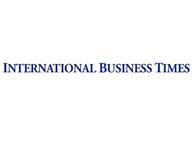Faculty News
—
Professor Luke Williams discusses the Entrepreneurs Challenge
—

Excerpt from The Economist -- "Promoting one’s own business idea, rather than a pre-conceived case from a framework thought up by contest organisers, is more dynamic and representative of real life, believes Mr Williams. Gone are the days of competition entrants crafting their business plan without putting together a prototype or speaking to customers to validate their assumptions, he says. The modern form of entrepreneurship puts much less emphasis on writing business plans and more emphasis on testing assumptions and talking to customers."
Faculty News
—

Excerpt from The Economist -- "Promoting one’s own business idea, rather than a pre-conceived case from a framework thought up by contest organisers, is more dynamic and representative of real life, believes Mr Williams. Gone are the days of competition entrants crafting their business plan without putting together a prototype or speaking to customers to validate their assumptions, he says. The modern form of entrepreneurship puts much less emphasis on writing business plans and more emphasis on testing assumptions and talking to customers."

















